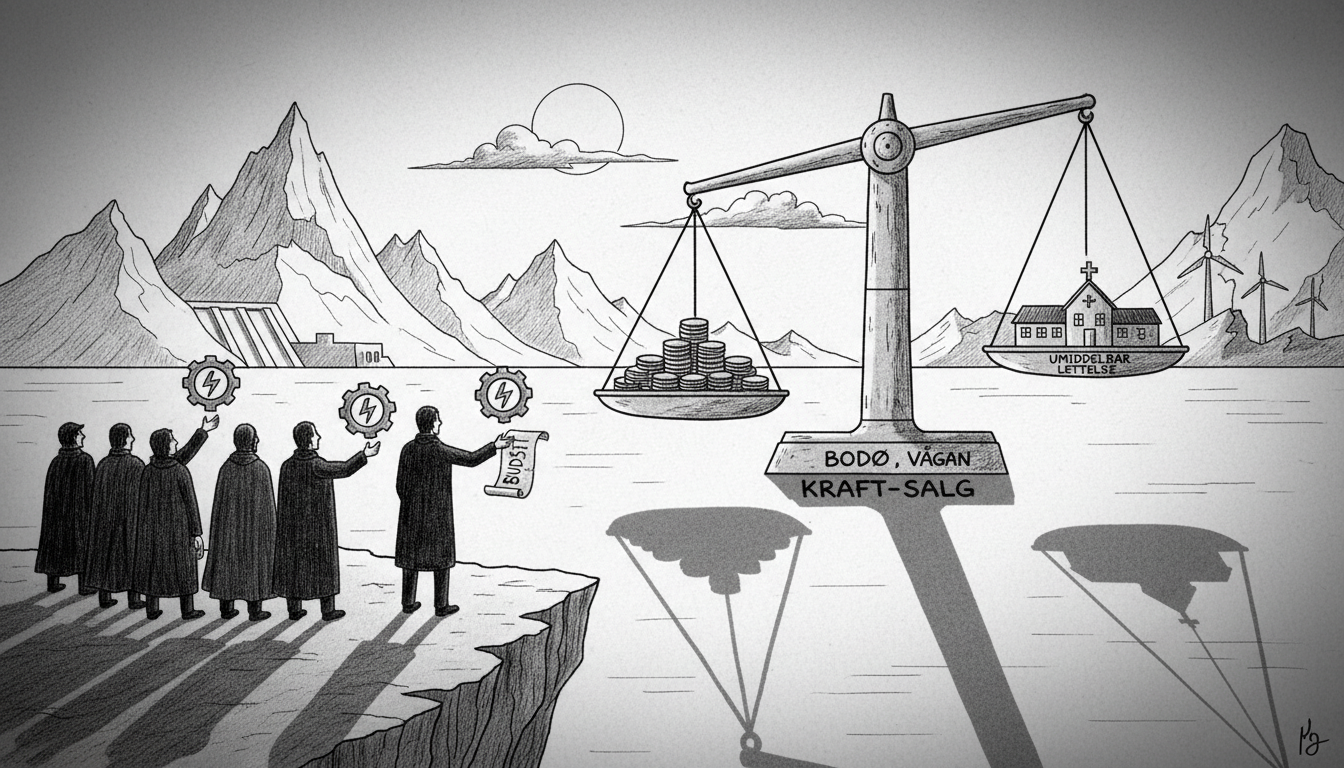Over half of Norway's municipalities face budget deficits this year. This economic pressure forces local governments to make difficult choices about public assets. Many now consider selling shares in community-owned energy companies to fund essential services.
Bodø Municipality plans to sell 49% of Bodø Energi, where the local government currently holds all shares. Mayor Odd Emil Ingebrigtsen explained the reasoning. He said municipalities must realize values to invest in new development. The funds would support urban development and a new nursing home. The sale could generate between 700 million and 1.2 billion kroner.
Bodø has received nearly half a billion kroner in dividends from Bodø Energi over 25 years. When asked about selling community assets, the mayor acknowledged the trade-offs. He compared it to personal finance decisions about borrowing for new investments.
Several other municipalities follow similar paths. Alta, Kautokeino, Bø, Ørland, Skaun and Rakkestad either consider or complete energy asset sales. Rakkestad sold all shares in its local energy company for 104 million kroner. Deputy Mayor Iselin Bjørnstad described it as a bittersweet but necessary decision. She cited energy sector transitions that could threaten future dividend stability.
Lofoten municipalities face identical pressures. Both Moskenes and Vågan consider selling their shares in Lofotkraft AS. Vågan's municipal director argues this could maintain citizen services and lower grid fees. The alternative involves cutting positions and reducing service offerings.
These energy companies represent community heritage. Bodø Energi has operated for over 115 years. Lofotkraft provided 413 million kroner in dividends to Lofoten municipalities over 25 years. Vågan alone received 169 million kroner. Yet they appear on the ROBEK list of financially stressed municipalities.
Vågan Mayor Vidar-Thom Benjaminsen describes an extremely pressured economic situation. He notes the difficult choice between selling power shares or closing schools and nursing homes. The 10% annual return on energy shares makes the decision particularly challenging. Politicians haven't yet decided their course, but the mayor acknowledges the desperation behind these considerations.
Lofotkraft CEO Arnt M. Winther naturally prefers keeping municipal owners. He highlights the stable, predictable frameworks from shareholder agreements. He cites examples where owners demonstrated responsibility during major grid upgrades.
Senior advisor Håvard Moe at KS Consult confirms this trend nationwide. He says municipalities face similar problems everywhere. Poor municipal economy remains the main cause. Energy companies have high value, and many municipalities carry substantial debt. He warns against selling heritage silver without addressing structural issues. But he acknowledges some municipalities have no other options.
This situation reflects broader challenges in Norwegian local governance. Municipalities balance immediate service needs against long-term revenue streams. The energy sector transitions create additional uncertainty about future returns. These sales represent pragmatic solutions to urgent problems, but they risk communities losing control over critical infrastructure. The decisions happening now will shape Norwegian municipalities for generations.

